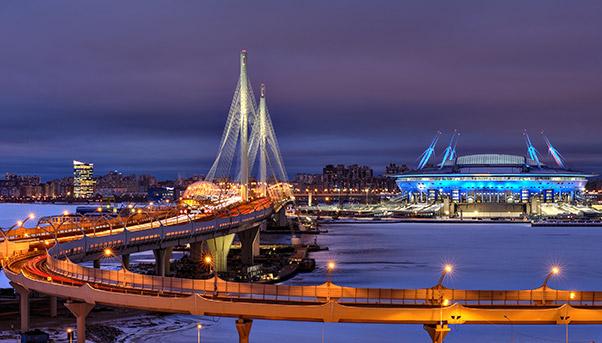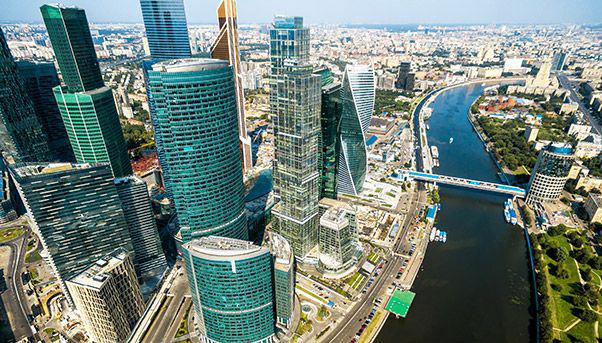
Just a few days after the World Cup 2018 kick-off, it’s already time to take stock. Not about the football championship’s winner, of course, but about the investments made to host the matches, since these big international events are becoming more and more expensive.
The topic is more interesting this year than ever, because Russia – just like it did with the Sochi Winter Olympics in 2014 – broke all the records this time too, transforming the 2018 World Cup into the most expensive games in its history.
Russia as host country as invested $14 billion, almost 10 times superior than the sum spent by the International Federation of Football Association, or FIFA, which spent $1.9 billion, accord to the website Statista. Of that sum, FIFA spent $627 million on organization, while the rest was divided between prize money, logistics of team management, television production, ticket sales and so on.
These amounts are miniscule compared to the avalanche of money that President Vladimir Putin unleashed to transform this global sporting event into a memorable moment off of the football pitch as well.
The right time to invest in infrastructure
“Moscow Times” took a look at the World Cup costs in a recent article, and found that the budget was amended 12 times compared to the forecasts made in 2010 when Russia was chosen as World Cup 2018 host. In the budget of $14.2 billion the most significant items were transport infrastructure ($6.1 billion), stadium construction, ($3.4 billion), and accommodation ($680 million).
Infrastructure has been the main focus of the organizers. Among the most important projects undertaken for the World Cup are the rebuilding of Saint Petersburg’s Pulkovo Airport and the construction of a new terminal at Kurumoch International Airport di Samara, along with a series of important improvements to roads and highways. The World Cup matches are being held in 11 cities with an average distance between them of 500 kilometres, in a country with the largest land mass in the world. So clearly, transportation is essential. The Russian government therefore spent hundreds of millions of dollars to modernize the network of roads that connect one city to another.
Despite the government’s investments in infrastructure improvement, the money is not enough to significantly better the quality of Russian infrastructure. According to the World Economic Forum report, Russia ranked 93rd out of 148 countries surveyed in terms of the quality of its logistics and infrastructure. At the same time, it also must be said that the economic crisis has certainly weighed on spending in recent years, which in turn has created huge expectations of an economic renaissance from the World Cup.

World Cup as economic stimulus
Along with a positive impact on its image, the Russian government is counting on a boost from the World Cup investments for its economy.
International credit rating agency Moody’s said recently that «Russia will only experience a short-lived economic benefit from hosting the 2018 FIFA World Cup tournament. Much of the economic impact has already been felt through infrastructure spending», according to Senior Vice President and analyst Kristin Lindow. She went on to point out that the football event will only last for one month, and the stimulus from spending connected to the event is destined to pale next to an economy with a gross domestic product of $1.3 trillion.
However, many other studies do demonstrate that the economic impact of large sporting events appear over the long term and are tied to many factories, such as an increase in tourist flows.
The organizers calculate that 570,000 foreign tourists will visit Russia to watch the World Cup matches, and 700,000 Russians will travel domestically.
Naturally, the largest portion of these visitors will head for Russia’s big cities, and Moscow and Saint Petersburg are expected to be flooded with 400,000 tourists during the Cup.
The impact is destined to grow over the coming years. According to Euromonitor, a research group specialized in tourist flows, visitors to Russia will increase 1.4% this year, and grow an annual 4% by 2022.
The future of Russian infrastructure
Once the World Cup is over and the lights go off in the stadiums, Russia will continue to invest in infrastructure. This is a promise made by Vladimir Putin in March, during his annual address to the nation. The goal is to reach by 2025 a pro capita income of $16,650 (in line with many other European countries) from $10,608 in 2017.
Putin announced during the speech that Russia will spend $193 billion on improving its streets and other transport infrastructure over the next six years. This huge sum will help give the country a modern infrastructure, and provide a strong stimulus to its economic development.

